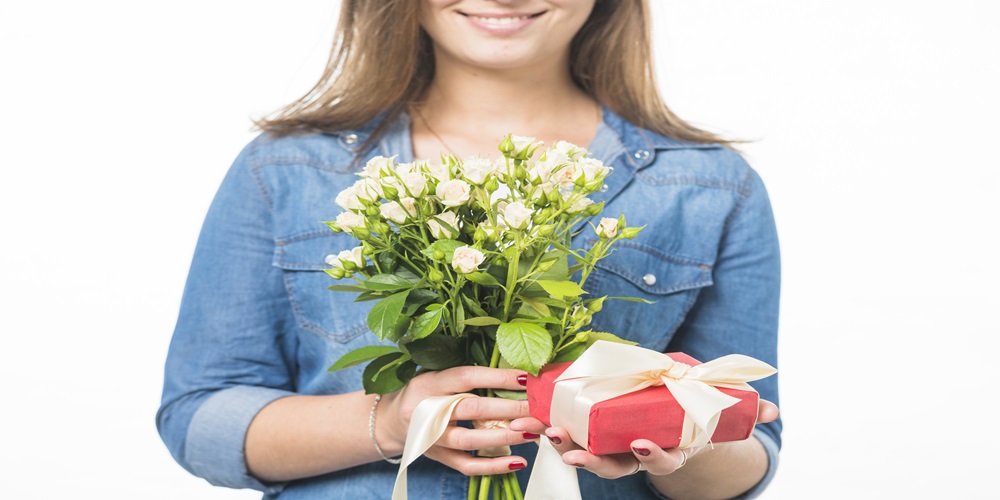Flowers, throughout history, have served as silent conveyors of emotions, delicately articulating sentiments across generations. From vibrant bouquets celebrating birthdays to comforting blooms offered in moments of solace, these fragile blossoms stand as a universal language of the heart, transcending barriers of time and culture. Their allure, invigorating fragrances, and timeless charm possess the remarkable ability to evoke joy and elevate spirits. In this guest post, we explore why flowers make exceptional gifts and delve into the psychological effects of giving flowers.

The Tradition of Gifting Flowers
The practice of exchanging flowers dates back to ancient times. While the exact historical origin remains elusive, we know that offering flowers has been a tradition since civilizations such as Greece, Egypt, Rome, and China. In Greek mythology, flowers held symbolic significance, representing various deities and permeating social customs.
Fast forward to the Victorian era, a period marked by restrained expressions of emotions; flower bouquets emerged as silent messengers of unspoken words. They were used to convey secret messages and subtle displays of affection. Sending a red rose signalled admiration, while a yellow carnation conveyed unreciprocated feelings. Even the arrangement of roses—upside-down or right-side-up—could convey emotions, with an inverted arrangement symbolizing anger rather than love.
Why Flowers? Understanding the Psychological Dynamics
Why do we turn to flowers to express our deepest emotions? There are several reasons:
- Expressive Capacities: Flowers transcend mere aesthetics; they represent a sophisticated means of expressing profound sentiments. Whether it’s love, appreciation, joy, sympathy, romance, affection, or contrition, flowers serve as an enduring language that resonates beyond verbal articulations or tangible gifts.
- Immediate Gratification: The sheer delight accompanying the receipt of flowers is instantaneous, eliciting genuine joy and a radiant smile on special occasions. It serves as a simplistic yet impactful method of spreading joy and crafting enduring memories.
- Promotion of Positivity: Flowers serve as nature’s mood enhancers. By adorning spaces, whether at home or in the workplace, they infuse brightness, foster positivity, and contribute to an overarching sense of well-being. It’s akin to ushering in a fragment of nature’s enchantment into our daily lives.
- Facilitation of Intimate Bonds: Flowers possess an inherent ability to speak the language of the heart, rendering them invaluable in forging and fortifying intimate connections. A personalized floral arrangements tailored to an individual’s preferences becomes a tangible manifestation of thoughtfulness and care.
The Impact of Gifting Flowers
Sending flowers is not just about the flowers themselves; it’s about conveying a message of care and creating meaningful connections. Individuals who choose flowers are perceived as compassionate, successful, and emotionally attuned. The satisfaction derived from witnessing the recipient’s joyful response boosts one’s self-worth and nurtures relationships.
Receiving Flowers: The Benefits
On the recipient’s end, receiving flowers entails its own array of benefits:
- Enhanced Mood: Flowers possess the remarkable ability to uplift and elate, influencing the recipient’s mood in a manner surpassing the fleeting joy of conventional gifts. Research suggests that this effect can endure for days, rendering the impact far more profound than that of typical presents.
- Stress Alleviation: Flowers emerge as natural stress-relievers, assuaging anxiety, apprehension, and despondency. The vibrant blossoms instill a more sanguine outlook, diminishing feelings of desolation and agitation. The simple act of receiving flowers contributes to an augmented sense of vitality and joy.
- Feelings of Happiness and Gratitude: The receipt of flowers transcends mere visual delight; it embodies an emotional embrace. Genuine or exuberant expressions of happiness and gratitude from the recipient are commonplace, triggering an upsurge in oxytocin and an overall enhancement in mood. The act of receiving flowers serves as a poignant reminder that one is being remembered, fostering sentiments of being cherished and loved.
Flowers and Mental Well-Being: Beyond Emotional Significance
While flowers may seem like inconsequential additions to our surroundings, their impact on our well-being is far from trivial. They play a pivotal role in mental well-being, stimulating our senses and influencing emotional and physical health positively.
In conclusion, flowers serve as powerful conduits of emotions, fostering connections, and enhancing well-being. So why not brighten someone’s day with the enchanting language of flowers? Order your local flower delivery Mississuaga today and let the beauty of blooms elevate your special moments.

